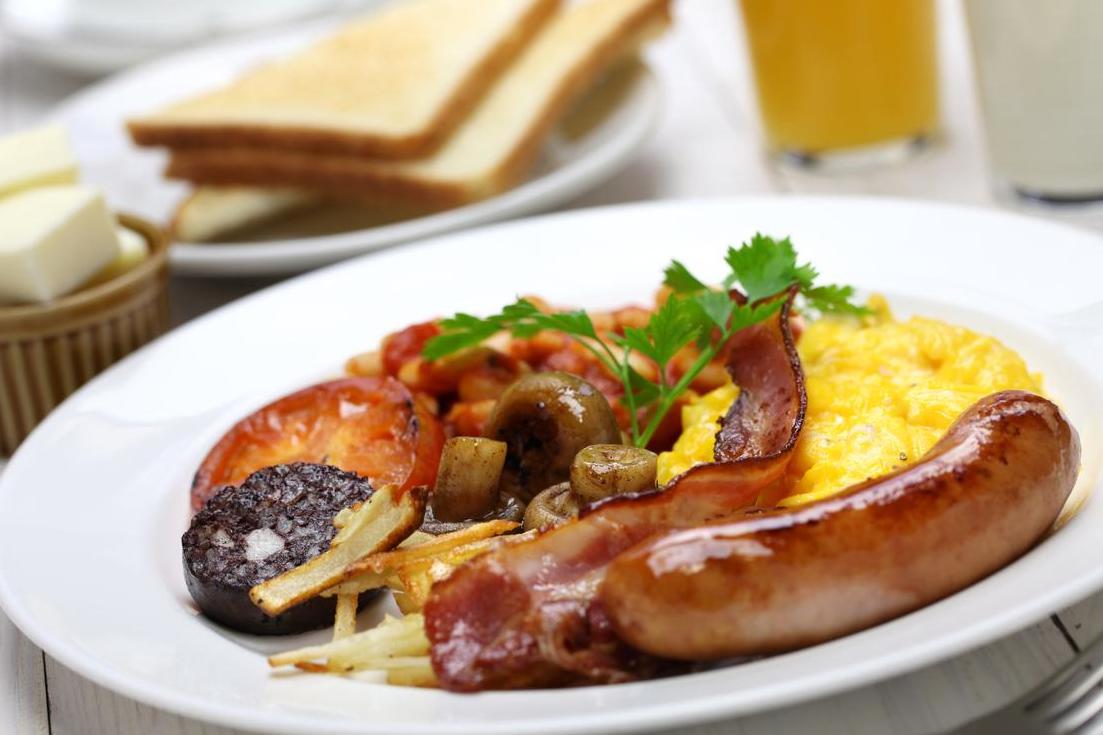Meat tax: Raise price of sausages, bacon and burgers by nearly 80 per cent to save lives, study says
Price hike would offset cost of current meat eating to national health systems and help change public behaviour in similar way to smoking tax, research suggests

Your support helps us to tell the story
From reproductive rights to climate change to Big Tech, The Independent is on the ground when the story is developing. Whether it's investigating the financials of Elon Musk's pro-Trump PAC or producing our latest documentary, 'The A Word', which shines a light on the American women fighting for reproductive rights, we know how important it is to parse out the facts from the messaging.
At such a critical moment in US history, we need reporters on the ground. Your donation allows us to keep sending journalists to speak to both sides of the story.
The Independent is trusted by Americans across the entire political spectrum. And unlike many other quality news outlets, we choose not to lock Americans out of our reporting and analysis with paywalls. We believe quality journalism should be available to everyone, paid for by those who can afford it.
Your support makes all the difference.Sausages, bacon and other staples of the full English breakfast should have their prices raised by up to 80 per cent to prevent nearly 6,000 deaths a year and save the NHS more than £734m, according to a new study.
Raising taxes on red and processed meats enough to offset their cost to the health service could prevent hundreds of thousands of cancers, heart attacks and strokes, University of Oxford researchers said.
Globally this would mean 220,000 fewer deaths a year and savings of $40bn (£30.6bn) if every country adopted a tailored levy based on their current levels of meat eating, they added.
In the UK the “optimum” tax would see red meat products cost 14 per cent more, while processed foods would rise by 79 per cent – enough to raise the price of a cooked breakfast by 54 per cent, according to The Independent’s analysis.
Other wealthy nations should be taxed even more heavily to offset their costs, the study published in the journal PLOS One suggests.
The proposals come after the World Health Organisation International Agency for Research on Cancer concluded that cured, smoked and other processed meats cause cancer, and the same was “probably” true for red meat – which has also been linked with cardiovascular disease.
This has led to calls for meat to be taxed in a similar way to cigarettes, alcohol, and other harmful luxury products.
“The consumption of red and processed meat exceeds recommended levels in most high and middle-income countries,” said lead researcher Dr Marco Springmann, from the Nuffield Department of Population Health at Oxford University.
“This is having significant impacts not only on personal health, but also on healthcare systems, which are taxpayer-funded in many countries, and on the economy, which is losing its labour force due to ill health and care for family members who fall ill.”
The system would “not limit choices” in the same way as a ban on certain foods, Dr Springmann added, but would help to relieve pressure on health systems and he hopes they’ll be considered by ministers.
“Nobody wants governments to tell people what they can and can’t eat,” he said. “However, our findings make it clear that the consumption of red and processed meat has a cost, not just to people’s health and to the planet, but also to the healthcare systems and the economy.”
A number of other, so-called “sin taxes”, came into effect this year.
The government levy on sugary drinks took effect to combat child obesity and Scotland introduced a minimum price per alcoholic unit scheme to curb problem drinking.
Denmark has proposed a tax on red meat to combat the ethical issue of livestock’s contribution to greenhouse gas emissions and some international industry groups see it as an “inevitability”.
The Full English
Processed meats account for roughly 63 per cent of the cost of a home cooked full English breakfast consisting of two sausages, two bacon rashers, a portion of black pudding, eggs, beans, and toast, according to The Independent’s estimates.
If ministers were to implement proposals in line with the Oxford researcher’s recommendations the cost of an average fry-up could rise around 54 per cent – from £1.49 to £2.30 per portion.
In a pub or cafe this could add around £2.50 to the price of a large breakfast – not accounting for wholesale savings or profit margins.
In countries like the UK a meat tax could reduce consumption of processed meat such as bacon and sausages by about two portions per week, the authors argue.
Higher taxes on processed meat were expected to drive down consumption more quickly than unprocessed beef, lamb and pork, the authors suggest.
As a result, consumption of unprocessed meat was predicted to remain unchanged by 2020.
The global benefits of a meat tax included a 16 per cent reduction in processed meat consumption, and the prevention of 222,000 deaths from cancer, heart disease, stroke and type 2 diabetes.
In addition an estimated 3,800 deaths related to obesity would be prevented, the study found.
The tax could have even greater gains in more carnivorous nations. In the US the proposed tax would increase red meat costs by 34 per cent, and processed meats by 163 per cent, while in Sweden they should rise 27 per cent and 185 per cent respectively.
Low and middle-income countries currently consume less meat than wealthier nations, on average, but their consumption is growing rapidly with serious consequences for health and the environment.
In China the study recommends an optimum tax level of 7 per cent for red meat and 43 per cent for processed forms.
Join our commenting forum
Join thought-provoking conversations, follow other Independent readers and see their replies
Comments